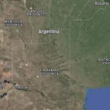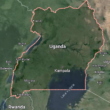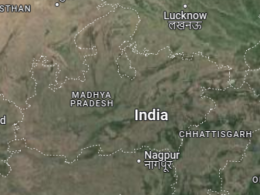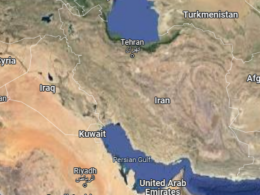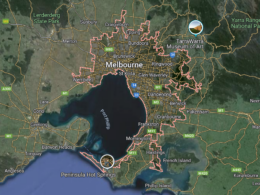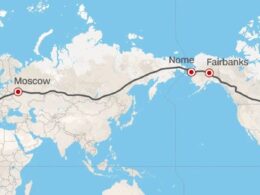Russia is the largest country in the world by land area, spanning 11 time zones.
It has the world’s deepest lake, Lake Baikal, which holds around 20% of the world’s unfrozen freshwater.
Russia’s Trans-Siberian Railway is the longest railway line in the world, stretching over 9,000 kilometers.
The country has a total of 12 UNESCO World Heritage Sites, including the Kremlin and Red Square in Moscow.
Russia’s Kaliningrad Oblast is a detached exclave between Poland and Lithuania, not connected to the rest of Russia.
The Russian language is one of the six official languages of the United Nations.
The Moscow Metro is one of the busiest metro systems in the world and known for its ornate station architecture.
Russia is home to Mount Elbrus, the highest peak in Europe.
The Hermitage Museum in St. Petersburg is one of the largest and oldest museums in the world, with over 3 million items.
Russia has a unique floating nuclear power plant, the Akademik Lomonosov, designed to provide power to remote areas.
The country has a coastline along the Arctic Ocean, making it a significant player in Arctic geopolitics.
The Amber Room in the Catherine Palace near St. Petersburg was considered the “Eighth Wonder of the World” before its disappearance during World War II.
Russia’s Lake Ladoga is Europe’s largest lake by area.
The country has a rich cultural heritage, with renowned composers like Tchaikovsky, Rachmaninoff, and Shostakovich.
The Russian nesting dolls, Matryoshka, are a popular symbol of Russian folk art and craftsmanship.
Russia’s Lake Baikal is the world’s oldest and deepest freshwater lake, estimated to be 25 million years old.
The country has a vast network of rivers, including the Volga, which is the longest river in Europe.
Russia is known for its diverse landscapes, from tundra and forests to steppe and taiga regions.
The Moscow Kremlin is the largest medieval fortress in Europe.
Russia has a strong tradition of ballet, with famous dancers like Anna Pavlova and Rudolf Nureyev.
The country has over 100 ethnic groups and indigenous peoples, speaking more than 100 languages.
Russia’s Trans-Siberian Railway connects Moscow with Vladivostok and spans eight time zones.
The country has a rich literary tradition, with writers like Tolstoy, Dostoevsky, and Pushkin considered among the greatest in world literature.
Russia has a spaceport called Baikonur Cosmodrome, leased to Russia by Kazakhstan, from where Yuri Gagarin launched into space.
The Moscow Kremlin is home to the world’s largest bell, the Tsar Bell, which weighs over 200 tons.
Russia has one of the coldest inhabited places on Earth, Oymyakon, where temperatures can drop below -50°C.
The country has a vast array of natural resources, including oil, natural gas, and minerals.
Russia’s Lake Onega is the second-largest lake in Europe.
The country’s cuisine varies greatly across its regions, influenced by its diverse climate and cultures.
Russia has a significant number of UNESCO Biosphere Reserves, protecting its unique ecosystems.
The country’s national symbol is the double-headed eagle, adopted from the Byzantine Empire.
Russia’s Baikal-Amur Mainline (BAM) is a second transcontinental railway line, constructed in the Soviet era.
The country has a rich tradition of folk music and dance, including the Cossack dance and the Kalinka.
Russia’s Siberian Tiger is one of the rarest big cats in the world, found primarily in the Russian Far East.
The country has a strong tradition of ice hockey, with the Soviet Union dominating the sport in past decades.
Russia’s Lake Baikal is home to the only freshwater seals in the world, the Baikal seals.
The country has a vast system of underground bunkers and shelters, remnants of the Cold War era.
Russia’s Catherine Palace in Pushkin is known for its stunning baroque architecture and the Amber Room.
The country is known for its extensive use of saunas, called banyas, which are an integral part of Russian culture.
Russia’s Lake Baikal contains around 20% of the world’s unfrozen freshwater reserve.
The country has numerous natural wonders, including the Valley of Geysers in Kamchatka.
Russia has a rich tradition of religious art and iconography, particularly in Orthodox Christianity.
The country’s Red Square in Moscow is a UNESCO World Heritage Site and a symbol of Russian history.
Russia has a large number of nature reserves and national parks, preserving its diverse flora and fauna.
The country has a unique tradition of nesting dolls, known as Matryoshka dolls, which originated in Russia.
Russia’s Hermitage Museum in St. Petersburg is one of the largest and oldest museums in the world.
The country’s Lake Baikal is the deepest lake in the world, reaching depths of over 1,600 meters.
Russia’s Volga River is the longest river in Europe, flowing over 3,500 kilometers.
The country has a diverse climate, from Arctic conditions in the north to subtropical climates in the south.
Russia has a rich cultural heritage, with a history spanning over a thousand years.
The country has a strong tradition of ballet, with renowned dancers and choreographers.
Russia’s Lake Baikal is the world’s oldest and deepest freshwater lake.
The country has a rich architectural heritage, with iconic landmarks like St. Basil’s Cathedral.
Russia’s space program has achieved numerous milestones, including launching the first human into space.
The country has a rich literary tradition, with authors like Dostoevsky and Tolstoy.
Russia’s Hermitage Museum houses over three million works of art.
**Please note that this post may contain affiliate links. When booking through one of our links, we earn a small kickback at no extra cost to you and it’s a big help to keep the site up and running.



